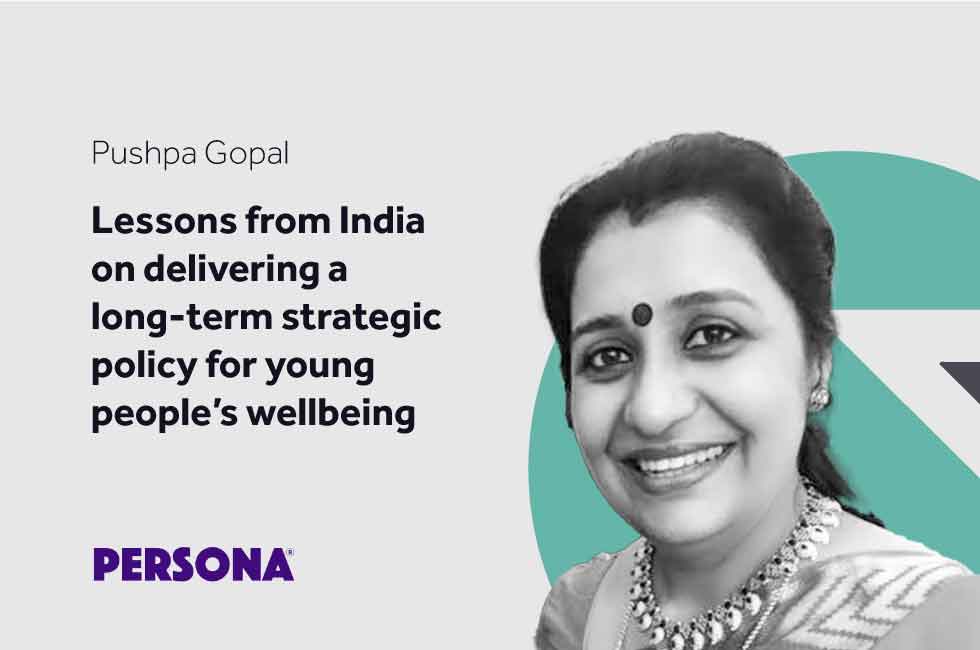As we move into the second year of our work at the Foundation for Education Development (FED) and following the launch of the FED National Education Consultation Report, we hosted a series of roundtable discussions seeking to answer the theme ‘Whatever happened to…?’. This roundtable discussion focussed on ‘Whatever happened to…wellbeing?’
We asked Pushpa Gopal, India Country Manager at Persona Education, to share her input into the roundtable discussion. In this thinkpiece, Pushpa highlights how India’s 20-year education vision in 2020 moves from a focus on results-orientated education to building overall wellness and developing social and emotional skills.
Lessons from India on delivering a long-term strategic policy for young people’s wellbeing
Indian children score low on wellbeing and social-emotional metrics
Only 41% of the children in India feel that sharing their mental health issues with others, and seeking support, will help them. This is significantly lower than the median of 83% of the 21 countries sampled in a 2021 UNICEF study[1].
This reluctance seems to stem from a culture of not recognising the validity of mental health issues, and possibly, unsafe environments not conducive for open sharing.
A change in long-term education policy
In 2020, India saw the first change in its National Educational Policy[2] (NEP) since 1986. The new policy highlights a need to shift from the earlier focus on an academic and result-oriented education to a brand new perspective of building overall wellness, developing social and emotional skills and fostering a culture of life-long learning in adults.
“Students must develop not only cognitive skills – both ‘foundational skills’ of literacy and numeracy and ‘higher-order’ cognitive skills such as critical thinking and problem-solving skills – but also social and emotional skills, also referred to as ‘soft skills’, including cultural awareness and empathy, perseverance and grit, teamwork and leadership, among others.”
India National Education Policy, 2020
Requirements for policy success
While the National Education Policy 2020 is a 20-year vision, there are several aspects that must be considered to ensure that changes achieved can be reflected across the entire educational system. And due to the significant diversity and disparity across Indian demographics, it is important that various accommodations are also met.
1. Access to education for all children irrespective of social groups, place of residence and abilities.
2. A realigned curriculum that enables students to understand themselves and their relationship with the people and environment around them. This will be the key to a well-rounded holistic development that can last through their adult life.
3. A drastic shift in teacher resources and training so they can understand the intention, vision and value of this new education policy. Simply providing a new set of textbooks and learning materials will not be enough to change the priorities and culture of a school. It necessitates teacher development by fostering a growth mindset, in order to initiate transformations in each classroom.
4. Creation of channels for regular communication with parents and guardians, to encourage their participation in the teaching-learning process. The mindset shift from competitive exam scores to a holistic development of their child requires a major cultural change.
5. A high-level curriculum is insufficient without considering local needs, problems and challenges.
6. The diversity of culture in India also tends towards a fragmentation of political leadership, with local lawmakers at different regions and stages supporting or pushing back against changes such as this major shift in educational approach. Although the national government might pass a policy, the responsibility to enact the change falls upon the state and city, which does not happen consistently across the country.
In summary, the National Educational Policy 2020 has initiated a new change with long-term implementation and strategies underway. The hope is now that India will observe schools across all segments of society moving forward in this country-wide push to improve student wellbeing.
[1] UNICEF, (2021). State of the world’s children.



